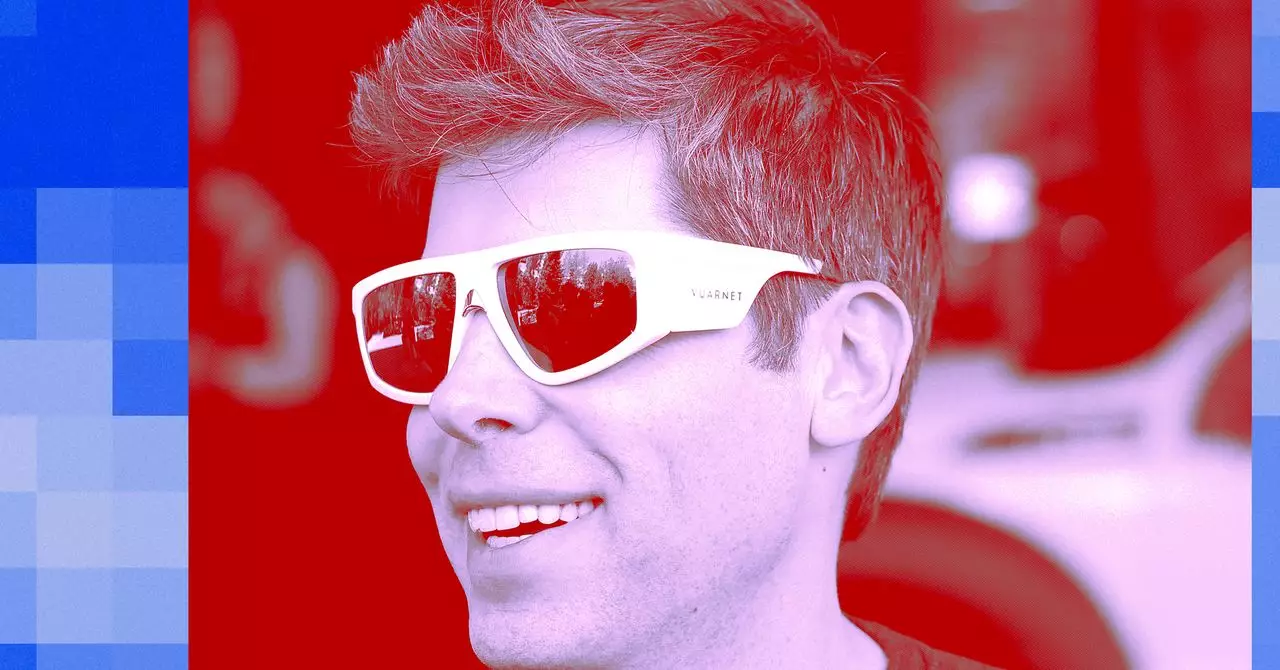The rapid evolution of artificial intelligence is not merely a technological race; it’s a existential chess game that could redefine humanity’s future. Central to this unfolding drama is “The Clause,” a little-known but profoundly consequential contractual stipulation, which offers a glimpse into the conflicting ambitions of tech giants and startup innovators at the forefront of AI development. The Clause is not just about legalese; it embodies a philosophical debate about ownership, control, and the very limits of profit in the face of potentially unstoppable intelligence.
Complicated and shrouded in secrecy, the true significance of The Clause lies in its ability to dictate the fate of transformative AI models—models that could surpass human intelligence and potentially revolutionize every facet of society. Its existence exposes a fundamental tension: how do profit-driven entities reconcile their desire for dominance with the unpredictable, perhaps uncontrollable, nature of superintelligent systems? This contract encapsulates the high stakes of AI development, where the line between innovation and recklessness can blur dangerously.
Conditions That Shape the Future of AI Control
At the core of The Clause are two pivotal conditions that determine when OpenAI can withhold future models from Microsoft. These are not arbitrary clauses but are designed to act as safeguards—or perhaps, as boundaries—on the release of superintelligent systems. The first condition is the declaration by OpenAI’s board that its latest model has achieved Artificial General Intelligence (AGI). But here lies the problem: defining AGI is anything but straightforward.
In OpenAI’s framework, AGI is characterized as “a highly autonomous system that outperforms humans at most economically valuable work.” This definition is intentionally vague, providing room for ambiguity and dispute. It raises profound questions: when does a system truly qualify as AGI? Is surpassing humans in specific tasks enough, or must the system demonstrate a broader, more profound level of autonomy? The lack of clear thresholds leaves room for strategic delay or premature claims—all to serve corporate interests.
The second condition revolves around “sufficient AGI,” a more quantifiable, yet still subjective, standard. It hinges on whether the model can generate profits exceeding a specific threshold—roughly $100 billion—all without the model necessarily producing that sum in reality. Instead, OpenAI must merely prove that such profits are feasible, which introduces a considerable element of speculation. Crucially, once OpenAI determines that these standards are met, it gains the unilateral right to deny Microsoft access to its latest models.
What makes these conditions especially compelling isn’t just their strategic ambiguity; it’s the potential for these clauses to become substantial barriers in the race toward superintelligence. The power shifts dramatically towards OpenAI’s board, allowing it to control whether openly sharing the latest AGI versions is even possible. It’s a move that raises ethical concerns, particularly about transparency and accountability in a domain where a misstep could lead to catastrophic consequences.
The Political and Ethical Dilemmas of Superintelligence
The implications of The Clause extend well beyond corporate negotiations. It symbolizes the power struggle over future AI’s custodianship—who gets to decide when and how superintelligent systems are released, and under what circumstances they are controlled or kept secret. In an era where technological breakthroughs can amass immense profits, the temptation to delay or withhold critical developments is potent. Meanwhile, the broader society remains blind to the true state of progress, often unaware of how close we are to a generational leap in AI capability.
This contractual mechanism exposes a core ethical dilemma: should private companies wield the ultimate authority over potentially humanity-altering inventions? The fear is that such concentrated control, cloaked in legal language and corporate interests, risks sidelining the collective good. It raises questions about accountability: what happens if a superintelligent AI is deliberately withheld, or worse, accidentally unleashed due to a misjudgment? The stakes are so high that this isn’t merely a business dispute but a matter of global importance.
The ongoing renegotiation of The Clause signals that tension is mounting. As debates intensify and more details leak, society must critically evaluate whether current corporate safeguards adequately address the risks inherent in developing AI that could outstrip human understanding. This isn’t about hindering progress—it’s about ensuring that humanity retains stewardship over a technology whose power could eclipse all previous inventions combined.
Power, Profit, and the Future of Humanity
What makes The Clause so uniquely revealing is its reflection of the broader motives fueling AI innovation. It highlights a fundamental truth: at stake isn’t just technological dominance but the potential monopolization of a force akin to a new form of power—one that could dwarf traditional geopolitical influence or economic control. To put it plainly, the companies staking their claims on AGI are essentially vying for a form of immortality in the digital realm.
From a strategic perspective, the clause offers a form of insurance—a safeguard ensuring that no one can untether humanity’s future from corporate interests prematurely. From an ethical perspective, however, it raises unsettling questions about who holds the ultimate say over a technology that could redefine what it means to be human. If the development of superintelligence is driven solely by profit motives, society risks edging toward a dystopian scenario where profit trumps safety, transparency, and shared benefit.
As AI continues its relentless march forward, the true value of The Clause may lie less in its legal specifics and more

